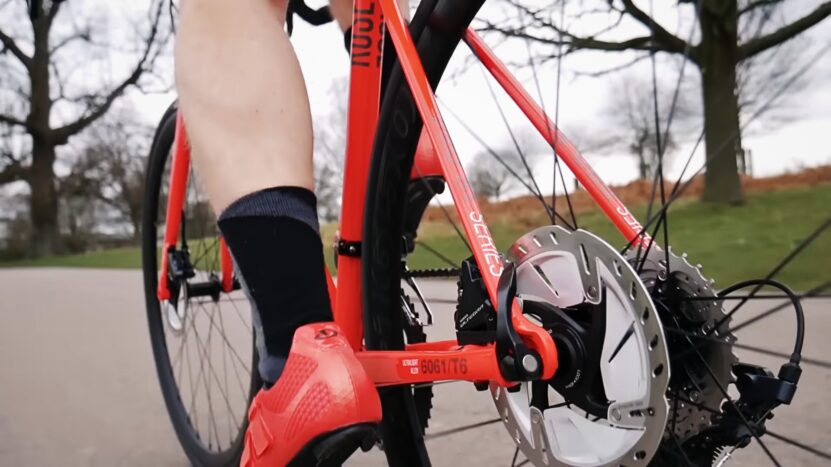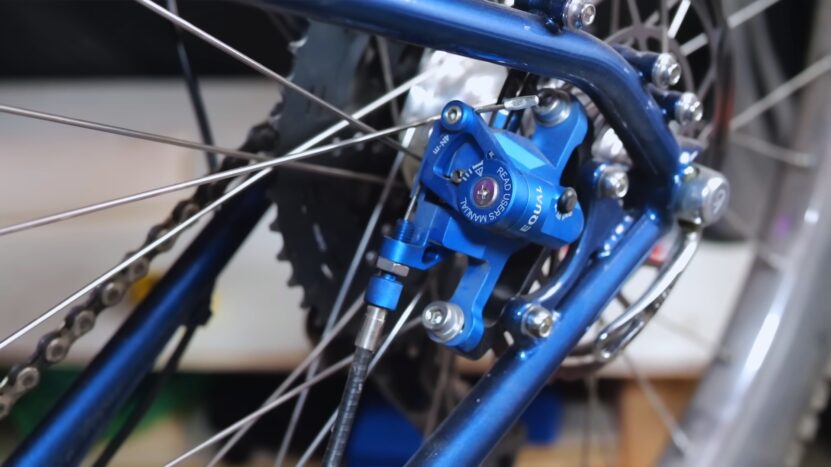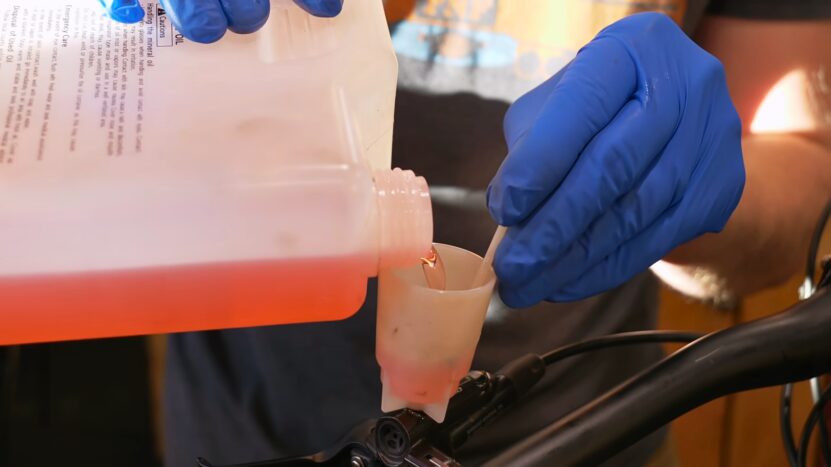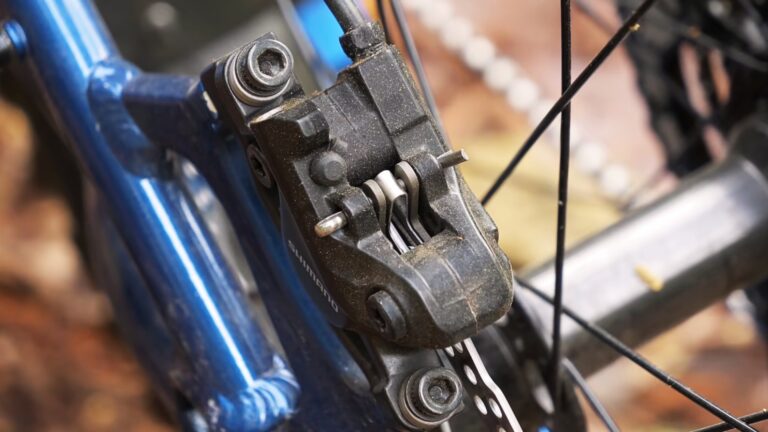Brakes are one of the most important safety features of a vehicle. There are two main types of brakes, hydraulic and mechanical. Each type has its own advantages and disadvantages.
Hydraulic brakes are the most common type of brakes used on modern vehicles. They use fluid pressure to apply the brakes. This means that they are less likely to fade under heavy use. Hydraulic brakes are also easier to maintain than mechanical brakes.
Mechanical brakes work by using a cable to apply the brakes. They are typically found on older vehicles. One advantage of mechanical brakes is that they are less likely to fail than hydraulic brakes. However, they can be more difficult to adjust and maintain.
Hydraulic Vs Mechanical Brakes
The main difference between hydraulic and mechanical brakes is how the force is applied to the brake pads. In a hydraulic system, fluid pressure is used to apply the force, while in a mechanical system, a cable is used.
Hydraulic brakes are generally considered to be more effective than mechanical brakes, as they can provide more force with less effort. They are also less likely to fail, as there are fewer moving parts.
However, hydraulic brakes can be more expensive to repair and maintain than mechanical brakes. They also require more frequent servicing, as the fluid needs to be replaced regularly.
Hydraulic brakes are typically found on higher-end bicycles, while mechanical brakes are more common on entry-level and mid-range models.
Key Differences Between the Two Types of Brakes
- Hydraulic brakes use fluid pressure to generate stopping power, while mechanical brakes use cables to actuate the brake pads.
- Hydraulic brakes are self-adjusting, while mechanical brakes require periodic adjustment.
- Hydraulic brakes typically provide more stopping power than mechanical brakes.
- Hydraulic brakes are more expensive than mechanical brakes.
- Hydraulic brakes can be difficult to adjust and maintain, while mechanical brakes are relatively simple.
Which type of brake is best for you depends on your budget, riding style, and personal preferences. If you’re looking for the most powerful braking performance, hydraulic brakes are the way to go.
If you’re on a tight budget, or if you don’t mind doing a bit of maintenance, mechanical brakes may be a better option.
Hydraulic Disc Brakes Overview

Hydraulic disc brakes are a type of braking system that uses fluid pressure to apply force to the brake pads, which in turn slows down or stops the vehicle.
Unlike mechanical or “cable-actuated” disc brakes, hydraulic disc brakes do not rely on physical contact between the brake pads and the rotor; instead, they use hydraulic pressure to apply the force.
This makes them more effective and efficient than other types of brakes and also allows for a smoother, more consistent braking experience. Hydraulic disc brakes are typically found on higher-end bicycles, as they offer superior performance and durability compared to other types of brakes.
However, they can also be found on some lower-end models, as they are becoming increasingly popular in the cycling world. Whether you’re looking for a new set of brakes for your mountain bike or road bike, hydraulic disc brakes are a great option to consider.
As mentioned above, hydraulic disc brakes utilize fluid pressure to apply force to the brake pads. When you squeeze the brake lever, a small amount of hydraulic fluid is forced through a sealed line to the caliper, where it pushes against a piston.
This in turn presses the pads against the rotor, slowing down or stopping the wheel. The advantage of this system is that it doesn’t rely on physical contact between the pads and the rotor; instead, the fluid pressure does all the work.
This makes for a smoother, more consistent braking experience, as there is no ” dead spot” in the lever pull where the pads are not touching the rotor. Additionally, hydraulic disc brakes offer better heat dissipation than other types of brakes, as the fluid helps to dissipate heat away.
Mechanical Disc Brakes Overview

There are two main types of mechanical disc brakes: those with calipers and those without. Caliper brakes are less common, but they’re still used on some mountain bikes. Caliper brakes have one or more brake pads that press against the rotor to slow down the bike.
The amount of pressure that the pads exert on the rotor can be adjusted with a knob on the brake lever. Caliper brakes work by using a lever to push two pads against the rotor. One pad is mounted on each side of the wheel.
The amount of pressure that the pads exert on the rotor can be adjusted with a knob on the brake lever. Both types of brakes are effective at slowing down a bike, but caliper brakes tend to be more powerful. This is because they can exert more pressure on the rotor than caliper-less brakes.
Disc brakes offer several advantages over traditional rim brakes. They’re more powerful, so they can stop a bike faster.
They’re also less likely to fade in hot weather, so they’ll work better when it’s really important to stop quickly. Disc brakes also tend to be more durable than rim brakes. This is because they don’t wear out as quickly.
And, if one brake pad wears out, you can usually just replace that one pad instead of the entire brake system.
What Are The Advantages Of Hydraulic Brakes
Hydraulic brakes offer many advantages over traditional mechanical brakes, including increased stopping power, more responsive braking, and less maintenance.
Hydraulic brakes are also less likely to fade during extended use, making them ideal for heavy-duty applications.
Advantages of hydraulic brakes
- Increased stopping power – Hydraulic brakes can generate more stopping force than mechanical brakes, making them ideal for heavy-duty applications.
- More responsive braking – Hydraulic brakes are more responsive than mechanical brakes, providing better control and shorter stopping distances.
- Less maintenance – Hydraulic brakes require less maintenance than mechanical brakes, making them more convenient to use.
- Less likely to fade – Hydraulic brakes are less likely to fade during extended use, making them ideal for heavy-duty applications.
- Better control – Hydraulic brakes provide better control and shorter stopping distances than mechanical brakes.
- Safer – Hydraulic brakes are safer than mechanical brakes because they are less likely to fail.
- More reliable – Hydraulic brakes are more reliable than mechanical brakes because they require less maintenance.
- Longer lasting – Hydraulic brakes last longer than mechanical brakes because they are less likely to fade during extended use.
- Environmentally friendly – Hydraulic brakes are more environmentally friendly than mechanical brakes because they generate less waste.
- Cost-effective – Hydraulic brakes are more cost-effective than mechanical brakes because they require less maintenance and last longer.
Is It Worth Upgrading To Hydraulic Brakes?
There are a few key reasons you might want to upgrade to hydraulic brakes. First, they offer much greater stopping power than traditional mechanical brakes. This can be a huge advantage of bike brake grips when riding in wet or icy conditions, or when descending long, steep hills.
Second, hydraulic brakes are generally much easier to maintain than their mechanical counterparts. Finally, many riders simply prefer the feel of hydraulic brakes, as they offer more precise braking control.
Are Hydraulic Brakes Hard To Maintain?

Hydraulic brakes are not difficult to maintain, but there are a few things you need to do to keep them in good working order. First, you’ll need to bleed the brakes periodically to get rid of any air that may have gotten into the system.
You can do this yourself with a bleeder kit, or you can take your car to a mechanic and have it done. Second, you’ll need to check the fluid level in the reservoir regularly and top it off as needed.
Finally, you should inspect the brake pads and discs for wear and replace them when necessary. If you do all of these things, your hydraulic brakes should give you years of trouble-free service.
Are Mechanical Brakes Easy To Maintain?
Yes! Mechanical brakes are actually very easy to maintain. In fact, they require very little maintenance at all. All you really need to do is keep an eye on the pads and make sure they’re not wearing down too quickly. Other than that, there’s not much else you need to do.
Of course, it’s always a good idea to take your car in for a tune-up every now and then. This will help to ensure that everything is running smoothly and that your brakes are in good condition. However, you shouldn’t have to do this too often – once a year should be plenty.
Is It Worth Getting Mechanical Disc Brakes?
Yes, mechanical disc brakes are definitely worth the investment. They offer much better-stopping power than rim brakes, and they’re also more durable and require less maintenance.
If you’re looking for the best possible performance from your bike, then mechanical disc brakes are the way to go.
Conclusion
In conclusion, hydraulic brakes are superior to mechanical brakes in terms of performance and durability. Hydraulic brakes are also easier to maintain than mechanical brakes.
If you are looking for the best braking system for your vehicle, hydraulic brakes are the way to go.

